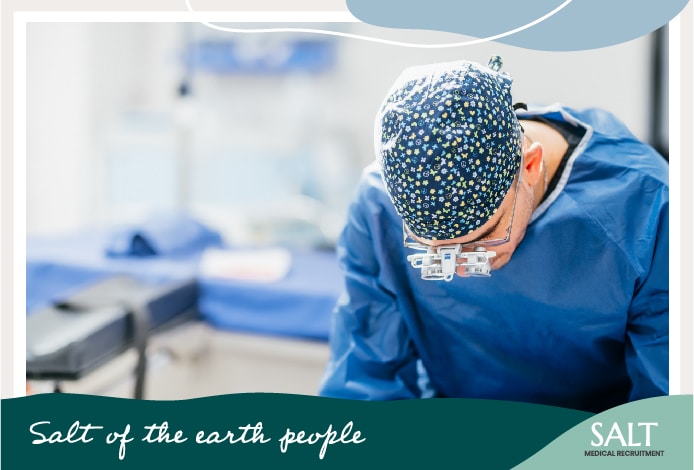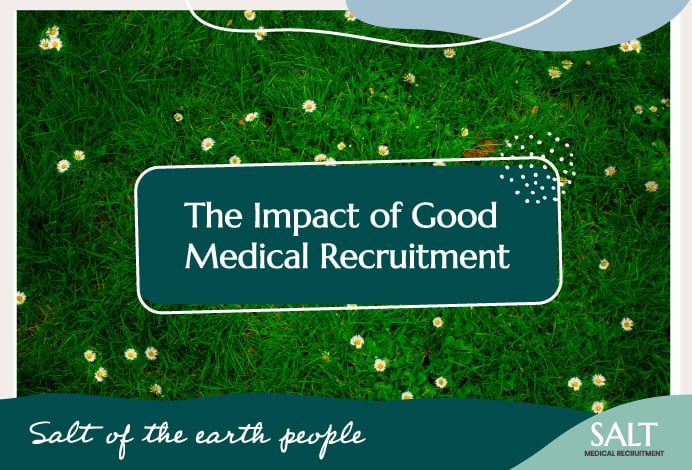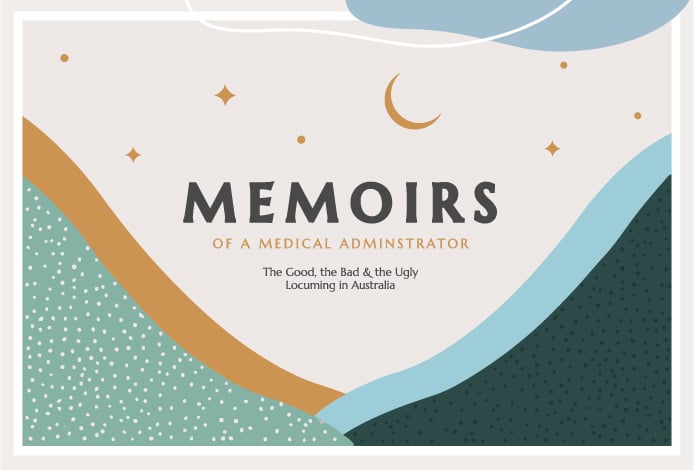Work-Life Balance: how do Australian doctors achieve balance?
Work-life balance is one of those terms that’s thrown around a lot at the moment – so we thought we’d explore how Australian doctors are feeling about work-life balance, whether it’s actually achievable, and what you can do to bring more balance into your life!
What is work-life balance? Is it even possible in the healthcare industry?
According to the trusty Cambridge Dictionary, work-life balance is defined as:
“The amount of time you spend doing your job compared with the amount of time you spend with your family and doing things you enjoy”
Simply put, work-life balance is where your work life and your personal life are ‘balanced’. Now, that doesn’t necessarily mean spending the same number of hours at work as you do outside of work (because quite frankly, there often aren’t enough hours in the day!) – but what it does mean is trying to achieve a balance between your satisfaction and happiness that comes from your work life and that which comes from your personal life.
For some, the definition of work-life balance is problematic, as it implies ‘work = bad’ and ‘life = good’. Particularly in the healthcare industry, we can see how that view might feel unnatural to those who joined the industry as a vocation, because they get an immense amount of satisfaction and happiness from their work.
But for us, work-life balance is more about balancing the source of overall happiness and satisfaction in your life. It’s not necessarily about labelling work as ‘bad’ and life as ‘good’, but it’s more about ensuring that every worker has the opportunity to gain pleasure, satisfaction and happiness from their life as well as their work.
In recent years, workers in almost every industry have been increasingly prioritising work-life balance when choosing their careers and assessing employment opportunities. In the healthcare industry, where hours are notoriously long and shiftwork is often the norm, we are seeing a similar shift in priorities, but the question remains: is work-life balance being achieved by Australian doctors?
Why does work-life balance matter for doctors?
When work and life feels out of balance, the impact can be huge – both for individuals, for patients and for the wider healthcare industry.
A study conducted in Australia in 2013 highlighted the impact overworking has on the mental health of junior doctors, concluding that those who reported working 55 hours or more per week (32% of the total week, leaving fewer than 113 hours for sleeping, eating and enjoying out-of-work activities) were twice as likely to report mental health disorders and suicidal ideation when compared to those working 40-44 hours per week.
When doctors feel overworked, they’re more likely to feel negatively towards their jobs, make mistakes and give patients a lower level of care than they’re capable of. Employee satisfaction is a key marker for job performance – meaning that the less satisfied a person is with their work, the more likely they are to perform poorly in their roles.
Considering the life-determining work doctors perform, performing poorly can have disastrous consequences – so, yes, work-life balance matters a lot for doctors, their patients, and the healthcare organisations they work in.
Doctors’ working hours across the world
So how do Australian doctors fair when it comes to achieving work-life balance in a way that feels right for them.
Back in 2015 (the most recent broadly based quantitative research we could find on this issue), researchers found that 53% of Australian GPs were content with the balance between their personal and professional commitments.
When asked what contributed to that balance, doctors cited:
- Flexibility of working hours (i.e., the ability to choose working hours that can fit around personal commitments)
- Opportunities for leisure activities in their everyday routines
- Good personal health
When all three of those factors are present in a doctor’s life, they’re more likely to feel that they’ve achieved work-life balance successfully.
Interestingly, the same study goes on to explore generational and gender differences in work-life balance reported by doctors. Gen X GPs (born between 1965 and 1980) achieved a better work-life balance than Boomer GPs (born between 1946 and 1964), and female GPs achieved a better work-life balance than male GPs.
Whilst there appears to be a greater opportunity to achieve work life balance in general practice, junior doctors and those working in the hospital system experience things differently.
A 2016 audit by the Australian Medical Association (AMA) found that 53 per cent of Australian hospital doctors were on rosters that placed them at significant risk of fatigue, mental and physical exhaustion. Many of the junior doctors in this study reported working hours in excess of 70 hours per week, often in high-pressured work environments with limited support.
With ongoing study and exam pressure also taking up precious time outside of work the unrelating demands of a career in medicine has become a real issue for many juniors doctors. With younger healthcare professionals now ditching the norm of overworking and under-living, there appears to an ongoing shift happening in the industry. However, instead of making the move into general practice (where there is a greater long term chance of achieving more autonomy over working hours), many of these burnt-out junior doctors are unfortunately leaving the industry altogether.
Across the global world of work, more and more of us are focusing on wellbeing in the workplace, pushing back against unreasonable employer demands and prioritising culture over salary – so it’s no surprise to us that younger generations are doing whatever they can to make sure they achieve work-life balance.
Looking at the working patterns of doctors around the world it appears as though Australian doctors are not alone.
US doctors work an average of 51.4 hours per week, with a huge 23.5% working between 61 and 80 hours per week (source), meaning it’s little surprise that “dissatisfaction, depression and burnout are common in [US] physicians”.
UK doctors are protected by the European Working Time Directive, which mandates an average of 48 hours per week maximum – but there is a huge amount of anecdotal evidence to suggest that this number in reality is much higher, particularly for junior doctors working to earn their stripes.
German doctors work a shockingly-huge average of 70 to 80 hours per week, which not only dramatically restricts their ability to achieve work-life balance but also goes some way to explaining the 25,000 patient deaths per year that are attributed to medical negligence.
How to improve your work-life balance
While work-life balance is a very personal thing, there are a few things that you can start considering or doing that might help you feel more satisfied in both your personal and professional lives. Here are some tips and resources that might help you on your way!
Be conscious of your time and energy
To allow yourself enough time and energy outside of work to do things that bring you personal satisfaction, time management is an incredibly important skill.
If, after your 12-hour shift, you come home, sit in front of the TV and scroll through Twitter for the next 4 hours, you’re unlikely to leave enough non-working time to do those activities that actually contribute to your wellbeing. We’re not suggesting that you never veg out on the sofa and do something mindless, because we all need to do that every once in a while – but we are suggesting that you factor in activities outside of work that take you away from screens and give you a sense of personal satisfaction.
Whether that’s a morning surf before a late shift or a visit to a museum after work, these personal activities should be planned into your week in advance, so that you can minimise the time you spend doing things that aren’t positively contributing to your wellbeing (like doom-scrolling!).
Learn to say no
No matter how many hours you spend at work, you need to learn to say no to out-of-work things that aren’t going to bring you joy and satisfaction. The first thing we’d recommend doing is to really spend some time with your own thoughts and try to figure out what things do bring you that satisfaction.
For many of us, that might be spending time with our family and loved ones, taking care of our physical health at the gym, or spending time outdoors in nature.
Finding the right role to bring you work-life balance
While we clearly can’t conclude that every Australian doctor has the potential to achieve work-life balance (at least in part because work-life balance is subjective for each individual), we can see from numerous studies that those reporting higher work-life balance worked fewer hours each week – so working hours at least lend some support to being able to achieve balance.
One of the most important factors in achieving work-life balance is the role that you’re in. So if we stand any chance of achieving work-life balance its important to find a role in a supportive environment and one that fulfils you professionally.
Our job here at Salt is to help you find that role. We want to help you find a role that brings you professional fulfilment, aligns with your values as an individual, and helps you progress your career – all while allowing for work-life balance too!
So, if you’re not quite getting that balance right at the moment, perhaps it’s time for a change of scenery? Take a look at the roles we’re hiring for at the moment – Our medical recruitment consultants can help you find a better work-life balance!











